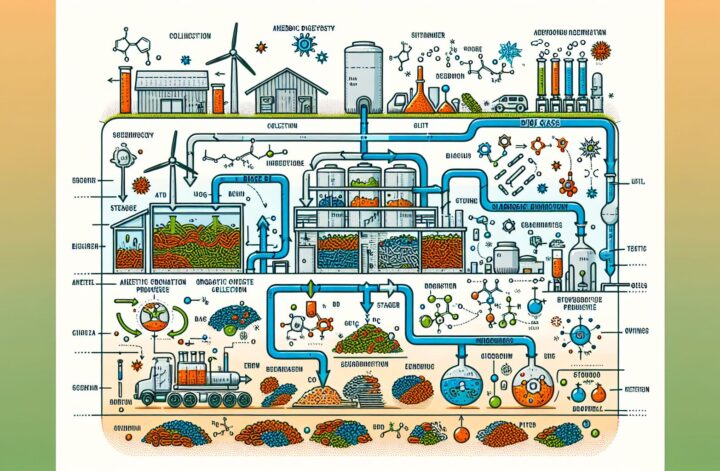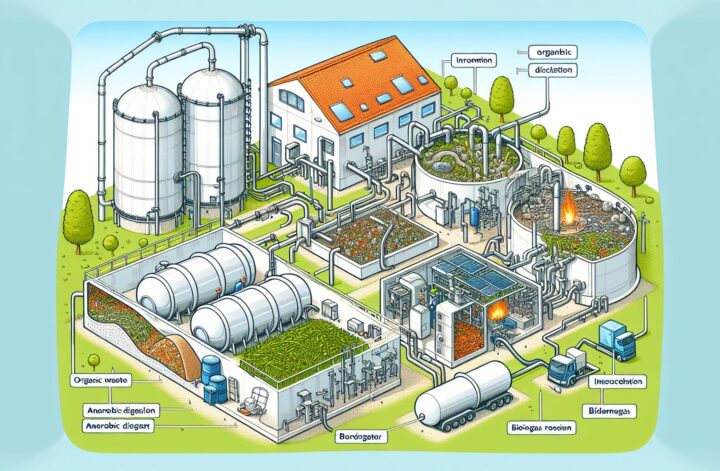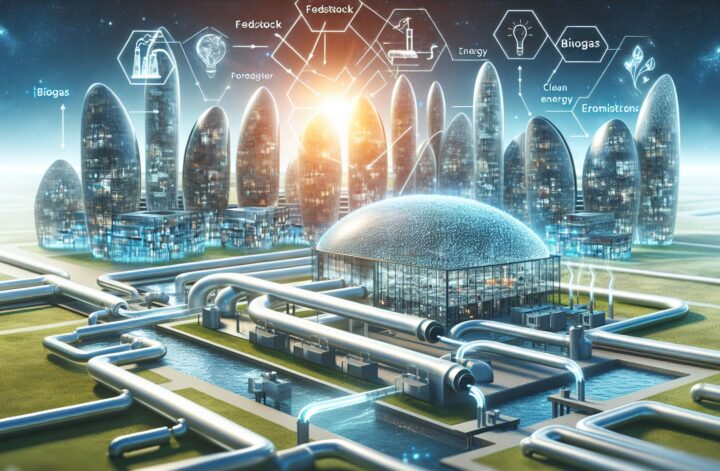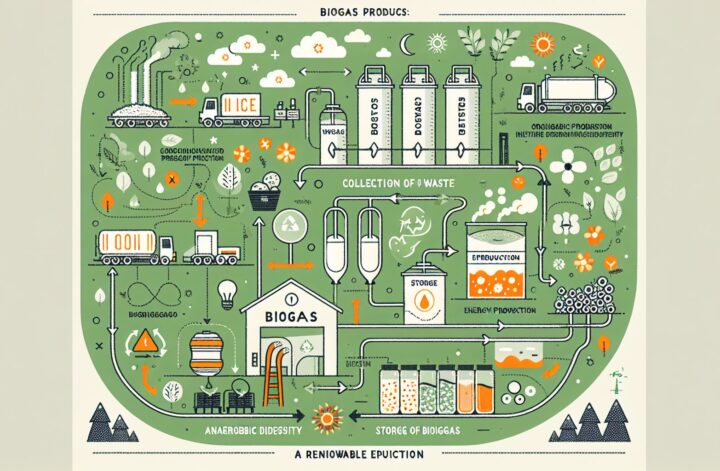Every day, our world uses massive amounts of energy. For years, this energy has been largely produced through the burning of fossil fuels, which produces greenhouse gases that contribute to climate change. However, in recent years, alternative energy sources have been explored and developed to reduce our dependence on fossil fuels. One such alternative source is biogas. In this blog, we will delve deep into the concept of biogas production, its scope, the process involved, and its challenges and benefits.
Biogas production is a renewable energy technology that can help to meet these challenges by reusing waste products from various sources such as livestock manure, agricultural residues, and organic waste from households and industries. The result of this process is a versatile energy source that can be used for heating, electricity production, and as a vehicle fuel[^1^].
Understanding Biogas
As its name suggests, biogas is a gas that is produced by the biological breakdown of organic matter in the absence of oxygen. This process is also known as anaerobic digestion. Biogas primarily consists of methane and carbon dioxide, with traces of other elements such as nitrogen, hydrogen, and oxygen. It is the methane in biogas that gives it its energy content[^2^].
The Biogas Production Process
The process of biogas production involves several stages that are naturally occurring.
-
Hydrolysis: In this phase, complex organic molecules, i.e., carbohydrates, fats, and proteins, are broken down into simpler compounds with the help of enzymes.
-
Acidogenesis: Here, the resulting compounds are transformed into volatile fatty acids (VFAs) and alcohols by acid-producing bacteria.
-
Acetogenesis: In this phase, VFAs and alcohols are further converted into acetic acid, hydrogen, and carbon dioxide.
-
Methanogenesis: Finally, methane is produced by methanogenic bacteria[^3^].
Benefits of Biogas Production
Biogas production offers a wide array of benefits including:
-
Renewable energy production: Biogas is a renewable source of energy since it is produced from organic waste which is abundant and continually produced by households and industries alike.
-
Waste management: Biogas production aids in managing waste, especially organic waste that usually gets dumped into landfills.
-
Reduction of global warming: Methane, a potent greenhouse gas, is captured and prevented from being released into the atmosphere, thus helping in the reduction of global warming.
-
A versatile energy source: The methane-rich biogas can be used for heating, electricity production, and as a vehicle fuel, making it a versatile source of energy.
Challenges in Biogas Production
Despite the numerous benefits, there are certain challenges that the biogas production industry is facing:
-
Technology related challenges: Fundamentally, anaerobic digestion is a complex biological process and any disturbances can considerably hamper the process. For instance, factors such as high ammonia concentrations can be toxic to methanogens and inhibit the anaerobic digestion process.
-
Operational challenges: The anaerobic digestion process is influenced by conditions such as temperature, pH, organic loading rate, etc. Therefore, maintaining optimum conditions to ensure efficient biogas production can be challenging.
-
Financial challenges: The initial capital required for installing biogas facilities is high and is often a prohibiting factor for individuals or small-scale industries[^1^].
Conclusion
Biogas production offers a sustainable solution to not only manage organic waste but also produce renewable energy. Despite certain technological and operational challenges, continuous research and development can provide solutions and enhance the reliability and efficiency of biogas production.
The shift towards a more sustainable, circular economy entails identifying new, greener energy sources. As a sustainable, renewable, and versatile energy source, biogas promises one such solution. Incorporating biogas production into our energy solutions is a practical and viable step towards combating climate change and progressing toward a cleaner and greener future.
[^1^]: Biogas production: a green waste disposal method
[^2^]: What is Biogas? A Beginners Guide
[^3^]: Anaerobic digestion: Process, Biochemical conversions, Microbiology, and Evolution




